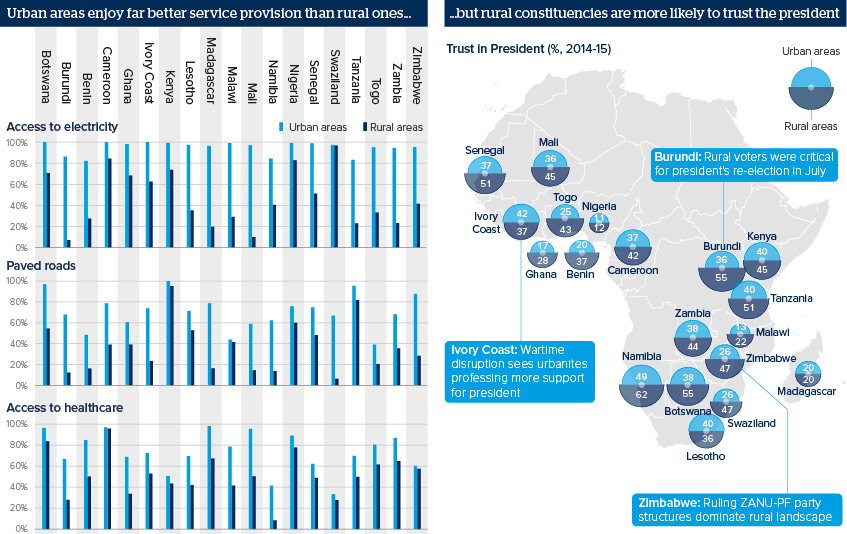Poor services do not dent rural African voter trust
Support for presidents remains high within underserved constituencies

Source: Afrobarometer, 2014-15 data
Outlook
Africa's infrastructure deficit is often discussed in broad aggregate terms. However, data indicate stark inequalities within countries. Almost all rural areas have long had less access to electricity, paved roads and health centres.
Yet rural constituencies also profess more trust in ruling parties than urbanites, partly due to forms of accountability that are not directly related to service provision.
Incumbents use state media, traditional and religious leaders, and incentives, such as agricultural subsidies, to mobilise voters in rural areas. The effect is to lessen pressure for improving conventional infrastructure and service delivery.
Urban constituencies tend to enjoy and demand a greater range of services, lessening their dependence on traditional forms of ruling-party patronage.
Impacts
- Rural voters are critical for ruling parties' re-election prospects, but urbanisation rates may begin to dilute electoral dominance.
- Decentralisation will spur greater demand for governance accountability, disrupting the dependent rural voter trend.
- However, devolution is often not accompanied by the fiscal capacity to satisfy new demand for local services.
- Local governments will tighten their focus on revenue collection, but often lack efficient administration skills.